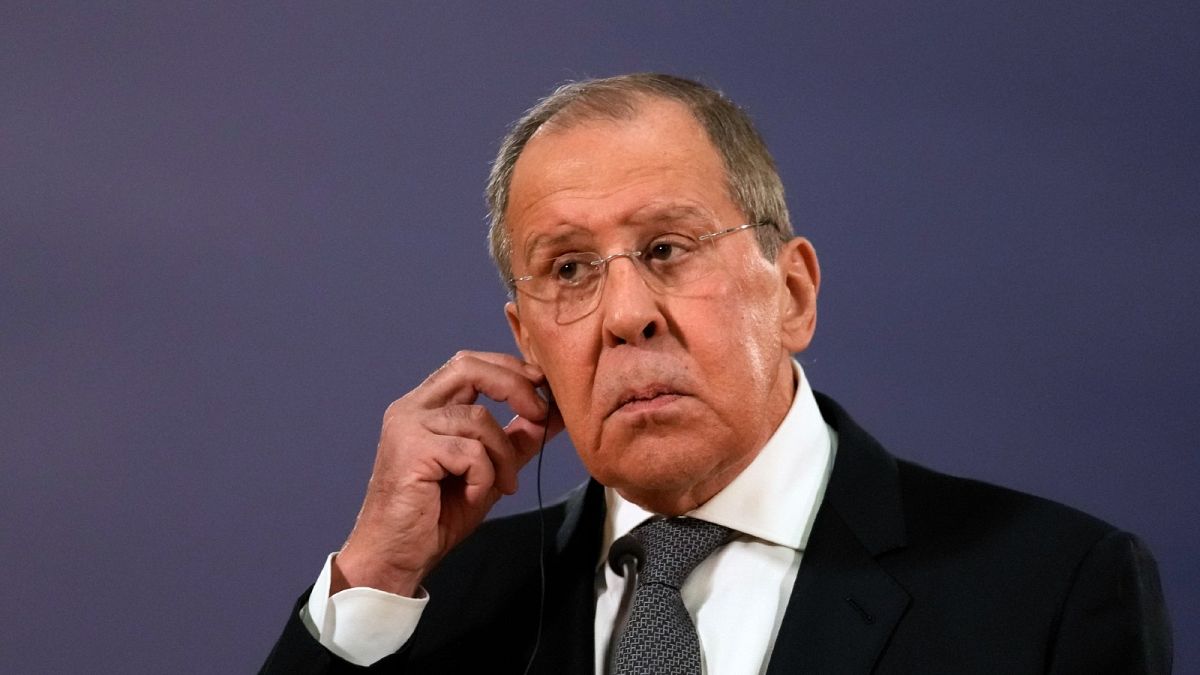Bulgaria, North Macedonia and Montenegro closed their airspace, preventing Russia's foreign minister from visiting Serbia.
The Kremlin has sharply criticised three European countries which have refused to let a plane carrying Russian Foreign Minister Sergei Lavrov cross into their airspace, for a planned official visit to Serbia on Monday.
A Kremlin spokesman described the decision by Bulgaria, Montenegro and North Macedonia as a "hostile act", while at a press conference Lavrov said it was "inconceivable" that the three countries had closed their airspace, denouncing the decision as "scandalous".
"Such hostile acts towards our country are capable of causing certain problems (...), but they cannot prevent our diplomacy from continuing its work," Kremlin spokesman Dmitry Peskov told journalists.
Serbian authorities also confirmed that Lavrov's visit will not take place, with President Vucic saying he met with the Russian ambassador to discuss the situation, but offered no concrete details.
A pro-Russian newspaper in Serbia published photos of what it said were official documents rejecting Lavrov's overflight requests.
Late on Sunday, Moscow also accused the West of closing off lines of communication by forcing Lavrov to cancel Monday's planned visit.
Serbia has maintained friendly relations with Russia despite the war in Ukraine, refusing to join sanctions against Moscow.
It has, however, voted several times at the United Nations to condemn Russia's invasion.
Serbia is fully dependent on Russian gas. Vucic recently talked to Russian President Vladimir Putin on the phone to arrange a new deal on gas supplies for the next three years.
Analyst Slobodan Stupar described Lavrov's attempted visit to Belgrade as a “show” that would have been used by Moscow to further vilify the West.
“I believe the Russians invited themselves” to Serbia, Stupar said. “They are terribly isolated. ... They can now say that Europe and the world are not democratic and won't allow a simple flyover.”
Analysts in Belgrade have pointed out that Lavrov's visit would further erode Serbia's standing in the West after Belgrade rejected imposing sanctions on Moscow.
German Chancellor Olaf Scholz is expected in the region later this week.
Stupar said that President Vucic has placed himself “in between” Russia and the West, by attempting to maintain ties with Moscow while Serbia is seeking membership in the European Union at the same time.
“That is the worst possible position one can imagine,” Stupar said.
